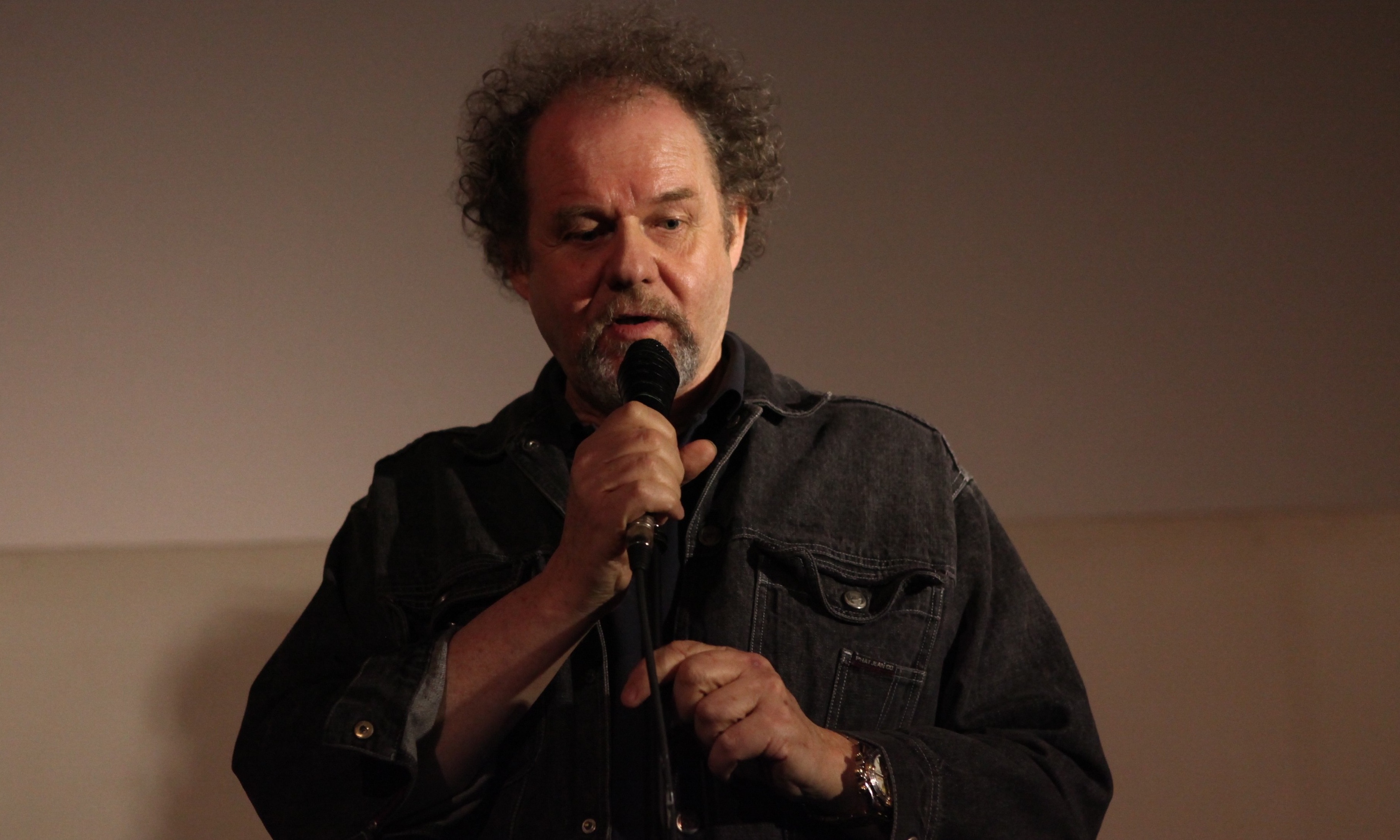 Mike Figgis’ latest experiment in subverting our expectations of filmmaking played at this years rather brilliant East End Film Festival. Suspension of Disbelief stars Sebastian Koch, Lotte Verbeek, Emilia Fox & Rebecca Night in a story, which is part noirish murder mystery and part sexual thriller. Koch plays screenwriter, Martin who during his daughter’s (Night) birthday party, meets and becomes instantly attracted to Angelique (Verbeek) but the next morning she is found dead. When her twin sister, Therese comes to collect her body, it appears there is more to this girl than meets the eye. When fact and fiction collide and boundaries blur, the audience find themselves constantly questioning everything on screen.
Mike Figgis’ latest experiment in subverting our expectations of filmmaking played at this years rather brilliant East End Film Festival. Suspension of Disbelief stars Sebastian Koch, Lotte Verbeek, Emilia Fox & Rebecca Night in a story, which is part noirish murder mystery and part sexual thriller. Koch plays screenwriter, Martin who during his daughter’s (Night) birthday party, meets and becomes instantly attracted to Angelique (Verbeek) but the next morning she is found dead. When her twin sister, Therese comes to collect her body, it appears there is more to this girl than meets the eye. When fact and fiction collide and boundaries blur, the audience find themselves constantly questioning everything on screen.
During East End Film Festival, I caught up with Mike Figgis whose filmography includes the Oscar winning Leaving Las Vegas, the hugely experimental Timecode and the thriller Cold Creek Manor.
Front Row Reviews: Where did the story for Suspension of Disbelief come from?
Mike Figgis: My twisted imagination – a dialogue with myself about “what is film now?”
FRR: In the past with films like Timecode along with Suspension, you really cleverly manipulate time and the spaces that the character find themselves, what is it about this technique that you find interesting?
what is it about this technique that you find interesting?
MF: Cinema is the perfect genre for the manipulation of time and space, and can be constantly revisited and reinvented. I see all drama as science fiction combined with black comedy.
FRR: How was the casting process for Suspension and did you have any particular ideas in mind when writing the characters?
MF: I started with no preoccupation, Sebastian Koch was suggested by his British agent, we met – the rest of the cast we arrived at through conventional casting.
FRR: Martin is a screenwriter Suspension of Disbelief; is there anything biographical in his character?
MF: Yes and no – I have never murdered anyone, but yes the teacher is me and he does vocalise my thoughts.
FRR: How did Lotte Verbeek find portraying two characters in the film; is there any differences between the way she played Therese and Angelique?
MF: Yes, however the first character only makes a brief occurrence in the film, and then is implied in the second character, so arguable her main portal is somewhat schizophrenic.
FRR: How does it feel to have Suspension playing at East End Film Festival?
MF: It feels great to have finally a UK home for it, albeit brief for a UK film.
 FRR: What would you say the themes you commonly work with is as it appears that you are quite a self reflexive filmmaker?
FRR: What would you say the themes you commonly work with is as it appears that you are quite a self reflexive filmmaker?
MF: I think all writer/directors inevitably draw on their own personal physiology. As Buñuel succinctly put it – we probably have two or three obsessions, which we rework from film to film.
FRR: At the start of Suspension you explain Jung’s theory of ‘Participation Mystique’, which I found immensely interesting and really opened up parts of the film and made me gasp – what in particular is it about this theory that interested you?
MF: I found the Jung quotation quite late on in the writing process and it provided me with the missing link in the discussion about the relationship between the drama and the audience and articulated my own feelings.
FRR: Due to the use of the titles in the film and the fact that Martin is also a teacher, I felt that the film recalled a selection of theories that I remember learning at university about structuralism and Proppian analysis of fairytales; was it important to you to have these nods throughout the film?
MF: Yes. I love the power of text – it adds a facet to the story telling possibilities and takes us back to literature and the power of the written word. It is a much underused device in cinema, but obviously explored in the 60’s and 70’s by Goddard and others.
FRR: What is next in the world for Mike Figgis?
MF: Working on a new film, and developing another, let us say experimental, film.
Suspension of Disbelief is out on 19th July if you didn’t manage to catch it during EEFF.




